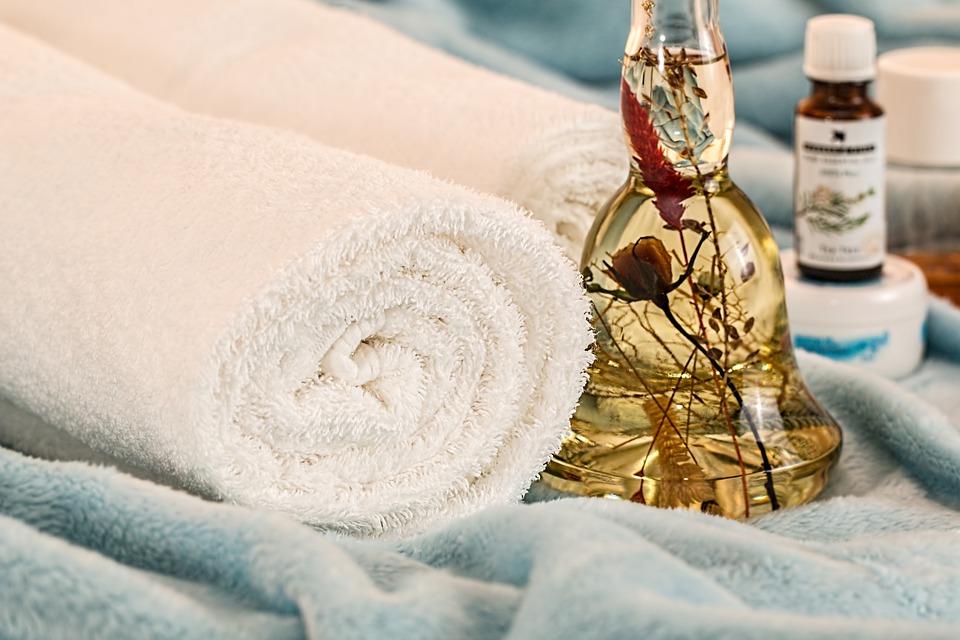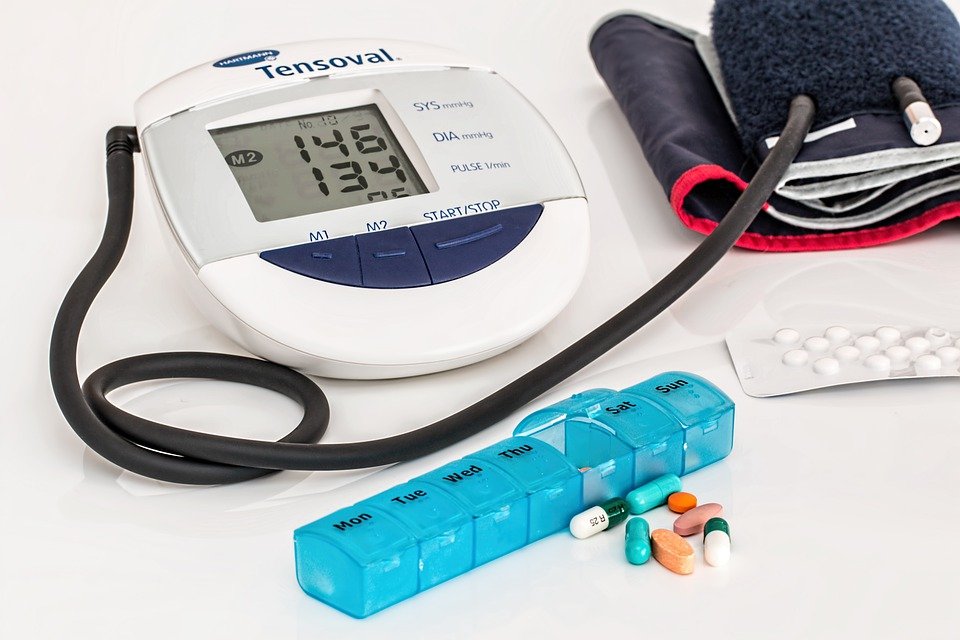
How does aromatherapy work?
Essential oils contain the property that gives a plant its distinct smell, as explained by Elizabeth Ko, MD. She is the medical director of the UCLA Health Integrative Medicine Collaborative and assistant clinical professor of medicine of the David Geffen School of Medicine at UCLA.
The way that essential oils are quickly absorbed by smell receptors is linked to the limbic system, which corresponds to different bodily functions such as heart rate, blood pressure, breathing, and stress, according to Dr. Ko. There are many different types of essential oils available, each with their own unique smell and set of effects. However, it is important to note that no two oils are exactly the same.
The findings are good (imagine replacing pills with scents!), but there are a few caveats: First, they are not well tested (read: there is not a lot of research out there). Also, you should use them carefully. “Whatever is powerful enough to have a positive effect on the body is also powerful enough to have a negative effect,” says Dr. Bauer.
Essential oils release volatile organic compounds (VOCs), which are gases often linked to paints and pesticides. Some VOCs are more hazardous than others, and “volatile” just means a substance can evaporate. So while moderate exposure to the best essential oils can be heart-healthy, prolonged exposure can pose cardiac risks.
What are the potential health benefits of essential oils?
- Lower Stress and Anxiety
Essential oils may provide stress relief and calm anxiety, which may be why people are attracted to aromatherapy.
Key Takeaways -The review found that, in general, the reviewed studies showed that inhaling or ingesting lavender essential oil (diluted and under guidance) can lower anxiety levels. -The review also found that adding lavender essential oil to massage treatments can help reduce anxiety levels. -The authors believe that the effects may be thanks to linalyl acetate and linalool, key compounds in lavender that have calming and sedating properties.
The authors said that inhaling lavender essential oil is generally safe, accessible, and inexpensive, and that it may be a helpful therapy to ease anxious feelings in some people. They also said that there is a need for higher-quality studies on lavender essential oil and anxiety.
The Cleveland Clinic has suggested that bergamot oil, lemongrass oil, orange oil, and cedarwood oil may be effective in treating anxiety.
- Offer Headache and Migraine Relief
Migraines and other headaches are extremely common, with some estimates suggesting that they affect up to 75 percent of adults worldwide. In the United States, migraines are particularly prevalent, affecting around 12 percent of adults, according to Johns Hopkins Medicine. Headaches can have a significant impact on people’s lives, causing them to miss work or school, and can also lead to feelings of anxiety and depression.
Some people use essential oils to relieve headaches. Peppermint oil may provide some relief when applied to the head and temples. This is most likely due to the presence of menthol, which has a cooling sensation that can reduce pain.
- Relieve Nausea
Some people try essential oils as a natural remedy for nausea associated with pregnancy, chemotherapy, and indigestion.
The oil also blocks pain signals from traveling to the brain, which can ease stomachache pain. According to a review that was published in March 2018 in Alimentary Pharmacology & Therapeutics, peppermint essential oil and ginger essential oil are often used for digestive discomfort, including nausea. Peppermint relaxes gastrointestinal muscles and lowers inflammation that worsens nausea. The oil also blocks pain signals from traveling to the brain, which can ease stomachache pain.
According to research, ginger can help prevent nausea by encouraging the digestive process and preventing food from lingering in your gastrointestinal tract.
The benefits of essential oils may extend to the gut, according to research.
A study published in September 2020 in the Journal of Holistic Nursing found that inhaling peppermint oil reduced nausea and vomiting among hospitalized patients. The results were comparable to those seen by patients who used aromatherapy and an anti-emetic medication. However, patients were allowed to choose which experimental group they wanted to be part of, which may skewed the results if patients expected their treatment to work.
A study of the effects of inhaling ginger showed only slight improvements in nausea and no improvement in vomiting for women receiving chemotherapy for breast cancer.
- Offer Antimicrobial Effects
This means that they can kill bacteria, viruses, and other microorganisms.
The essential oil of eucalyptus, for example, has shown potential in fighting oral bacteria, such as Porphyromonas gingivalis, according to a review published in Molecules in June 2019. This bacteria contributes to periodontitis, an inflammatory disease that destroys the tissues around teeth. The main component in eucalyptus, 1,8-cineneol, has been used in oral hygiene products such as mouthwash, according to the authors.
The Earl E. Bakken Center for Spirituality and Healing at the University of Minnesota says that adding a few drops of essential oil to water and gargling it before spitting it out can be effective for certain essential oils and indications. However, some experts warn against this technique, saying that it can damage the membranes in your mouth and cause scar tissue and irritation.
An alternative to regular cold sore treatments that is full of antimicrobial properties is tea tree essential oil. Studies done in test tubes showed that the herpes virus is prevented from multiplying when tea tree essential oil is present, according to the Molecules review. In addition, a study done on a small group of people with recurrent herpes labialis (cold sores) showed that some relief from the symptoms may be found when a 6 percent tea tree essential oil gel is applied topically. Although the study’s authors note the small sample size, this is still promising news for those who suffer from cold sores.
- Encourage Sleep
According to the Cleveland Clinic, nearly 70 million Americans suffer from sleep disorders every year. The Mayo Clinic states that common treatments for disorders such as insomnia include cognitive behavioral therapy, prescription sleep aids, or a combination of both. Adding a relaxing essential oil to your nightly routine may also be beneficial.
For example, lavender oil includes many beneficial compounds, such as linalool and linalyl acetate. These two compounds work to slow down central nervous system activity, with linalool causing sedative effects and linalyl acetate causing narcotic actions, according to a review.
A study of 60 patients in a cardiac intensive care unit found that those who inhaled lavender essential oil for 15 days had significantly improved sleep quality and anxiety compared to those who did not inhale the oil.
Another study found that taking a whiff of lavender essential oil may help improve sleep quality for young adults. Subjects reported feeling more energetic the next morning, which researchers attributed to an increase in slow- and deep-wave sleep patterns.
The reviewers concluded that while most studies suggested a positive effect of essential oils on potentially decreasing mild sleep disturbances, further studies with larger participant sample sizes are vital to substantiate these findings.
- Tames Muscle Pain
Essential oils have potential benefits for muscle pain, including chronic back pain.
Chronic back pain is a common issue in older adults. In a study done in Thailand, researchers tried to see if there was a difference in pain relief between two different types of massages, with or without ginger oil. They found that both groups showed significant improvements in pain, but the group that received the Swedish massage with ginger oil saw better long-term outcomes. It’s hard to say for sure if it was the ginger oil, the massage technique, or a combination of the two that was responsible for the better results.
The study found that the women who took two doses of the rosemary oil supplement had less muscle soreness at 24 and 48 hours after their workout than those who took the placebo. After a workout, essential oils may help lower muscle pain. A study found that women who took two doses of the rosemary oil supplement had less muscle soreness at 24 and 48 hours after their workout than those who took the placebo.
What are the potential side effects of essential oils?
What are the side effects of using essential oils? It depends on the oil being used and how it is being used, according to Yufang Lin, MD, an integrative medicine specialist at the Cleveland Clinic’s Center for Integrative Medicine. “Citrus-based essential oils, such as orange, lemon, and bergamot, can cause sunburn if applied directly to the skin, especially undiluted,” she says.
She adds that some essential oils, like mugwort, pennyroyal, and wormwood, can cause your uterus to contract, so you don’t want to use them during pregnancy.
People with allergies or respiratory problems should be careful using essential oils, but they are generally safe when used as directed.
Essential oils are normally harmless and often have a positive effect, especially when used in aromatherapy, according to Dr. Ko.
What’s the best way to use essential oils?
To get the most out of essential oils, stay within a 15- to 60-minute timeframe—breathing in essential oils for more than one hour at a time is not recommended. Always follow the instructions on the product label, and if you are taking medications or have a chronic health condition, speak with your doctor before using aromatherapy. Essential oils, like any other medicine, should be used correctly to achieve desired health benefits.
The best way to use essential oils is with a diffuser, but if you don’t have one, you can drip the oil into a bowl of steaming hot water. In either case, use only one or two drops of one oil at a time. Stand a few feet away from the bowl and take 10 deep breaths, then breathe normally. If you don’t exceed the safe time limit and open a window when you’re done, you can use this method every day.
Make sure to purchase genuine products by following these tips: -Check the ingredients list to see if they match what you’re looking for -Do some research on the company to see if they have a good reputation -Talk to a knowledgeable person about essential oils to get their opinion
- Beware the blanket aromatherapy label, often slapped on diluted oils laced with synthetic fragrances.
- Look for 100 percent pure and organic oils free of fillers, pesticides, and synthetic chemicals.
- If a label says therapeutic grade or steam distilled, even better.
- Most essential oils have long shelf lives—more than a year if stored in a cool, dry place. If the shop you’re in is hot or humid, buy elsewhere.
- Lavender
Use it: For better sleep
Lavender is the best essential oil for relaxation, according to research. It can help people sleep better and wake up more refreshed. Lavender has also been shown to reduce anxiety, making it helpful for nights when racing thoughts are keeping you awake.
Some bonus perks of lavender include lowered blood pressure and heart rate, as well as cooler skin temperature.
- Clary Sage
Use it: To reduce blood pressure
The 2013 study found that women who smelled clary sage experienced lower blood pressure and breathing rates. The study also found that these women were able to relax during a stressful medical exam.
Bonus perks: It may help with memory and attention.
- Peppermint
Use it: To wake up
The research showed that the participants who breathed in peppermint felt more alert and had a better memory.
An added benefit of this is that it may help to reduce both feelings of fatigue and the desire for chocolate.
- Orange
Use it: To decrease anxiety
A study found that when women sniffed lavender oil during labor, they felt less anxious.
An added bonus of this treatment is that it may help with Post-Traumatic Stress Disorder, according to one study.
- Rosemary
Use it: To enhance brainpower
According to a 2012 study, rosemary can improve speed and accuracy during demanding mental tasks. Other research found that its scent left people feeling refreshed and mentally stimulated.
The possible benefits of taking this supplement include increased energy levels and reduced fatigue.














